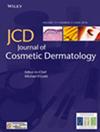Facial aging is the result of a number of factors, including the resorption of skeletal tissue, the atrophy of fat pads, and the laxity of connective tissue. These factors contribute to a reduction in facial volume and the development of skin changes. Thermal mechanical fractional injury (TMFI) represents a minimally invasive solution, stimulating collagen production and enhancing the delivery of topical formulations via epidermal microcraters.
This study seeks to evaluate the effects of TMFI on skin quality and introduce quantifiable methods to assess improvements.
Adult patients seeking facial rejuvenation underwent three TMFI sessions, with a one-month interval between each session. The assessment of skin quality was conducted using the Scientific Assessment Scale of Skin Quality (SASSQ), which was completed by blinded experts. Patient satisfaction was evaluated using the FACEQ scale. Additionally, objective texture analysis was performed using the MAZDA program, which quantified surface irregularities.
The objective assessments demonstrated statistically significant improvements in the following parameters: roughness, wrinkles, pore size, elasticity, pigmentation, and erythema (p < 0.001). The FACE-Q results demonstrated high patient satisfaction, with a response rate of 68.4%. The MAZDA analysis confirmed significant texture improvements across most facial zones, with the exception of the medial forehead.
The findings of this study indicate that TMFI is an effective intervention for improving skin quality in a diverse range of patients. This study contributes to the existing literature on TMFI, which supports its use as a valuable tool in the field of skin rejuvenation.



